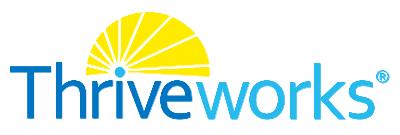About Job
- Accepting applications
- Performs FAP Case Management duties, which include receiving initial reports of suspected child and spouse abuse from military and civilian representatives and taking all steps required under the FAP.
- Serves as designated case manager and primary FAP point of contact for spouse and child abuse cases ensuring all actions are in compliance with DoD and Navy directives and civilian reporting requirements.
- Receive reports of problematic sexual behaviors in children and youth (PSB-CY) from military and civilian representatives and take appropriate action per FAP PSB-CY requirements. Provide or coordinate clinical services access with other FAP providers or with community clinical providers for exhibiting children, youth, and their families, including psychoeducational support, assessment, and clinical intervention.
- Prepares case summary reports and maintains ongoing contact with the Family Advocacy Representative for all child sexual abuse cases involving alleged active duty offenders.
- Assess all reports of alleged child and domestic abuse, to include interview of alleged offenders, victims, children, and other witnesses.
- Develops appropriate, risk-focused treatment and interventions for victims and perpetrators of child and domestic abuse in accordance with Navy Certification standards.
- Coordinates FAP training and ongoing communication to inform active-duty military and their families of the problems of family violence, FAP requirements and the services available to them.
- Provide direct non-medical, short term solution focused counseling services to eligible children, parents, families and groups using psychotherapeutic services, such as cognitive behavioral therapy, mindfulness-based therapies, acceptance and commitment therapy, solution-focused brief therapy, family systems therapy, expressive therapies, etc.
- Assess client's needs and the nature and scope of their problem(s) and behavior, explore basic personality structure in relation to behavior patterns, mechanisms and symptoms, and analyze information collected to develop a diagnostic impression and treatment plan, and/or provide treatment referrals, as appropriate, to other clinical agencies.
- Recognize symptoms in clients with diagnosable disorders falling outside of the authorized scope of practice such as schizophrenia, bipolar disorder, eating disorders, substance use disorders, major depression or other symptoms requiring specialized medical/psychiatric intervention and/or longer-term treatment.
- Assist individuals and families with finding satisfactory ways of coping with commonly occurring life stresses (e.g. career change, work-related stress), family dynamics (e.g. divorce, communication problems), parenting, crisis response (e.g. physical, sexual or emotional abuse), or other stressors. Identify crisis situations (e.g., suicide or homicide risk, danger of physical or sexual abuse to family members, increased risk of interfamilial or extra familial violence) when conducting clinical assessments, and provide immediate crisis intervention, conduct risk assessment, and prepare and/or coordinate safety planning IAW best practices in the mental health community.
- Educate military, civilians and families on suicide intervention and at-risk behavior.
- Comply with reporting protocols involving high-risk case when reporting risk of suicide, homicide, domestic abuse or child abuse, and high-visibility cases.
- Inform military and civilian agencies on scope of practice, how to engage in services, available counseling services (i.e., couples, individual, and children/family), and clinical issues and treatment related to children and adolescence; and train on clinical areas of interest (i.e., sleep hygiene, healthy communication, etc.) upon request and if availability allows. Consult and coordinate with other military and civilian service agencies on specific client cases (i.e., military treatment facility behavioral health, civilian military health providers, CPS, etc.), on an ad-hoc basis.
- Collaborate with civilian community service boards and organizations regarding issues unique to military children.
- Performs other duties as assigned.
- Must provide proof of U.S. Citizenship or U.S. National.
- Must successfully pass the E-Verify employment verification check. Any discrepancies must be resolved as a condition of employment.
- A valid State driver's license is required to operate motor vehicles.
- Must be current in continuing education credits/units.
- May be required to serve in an “on call” duty status outside of normal work hours.
- Starting May 7, 2025, non-affiliated individuals requesting access will need a REAL ID-compliant driver's license or another acceptable form of identification to access CNRMA Installations. (review required documents section for more information.)
- Expert knowledge of and skill in employing various counseling approaches, clinical treatment principles and practices, research methods, group dynamics, motivational interviewing, developmental psychology, and family systems therapy to counsel children, adolescents and families.
- Able to communicate effectively and professionally using a variety of methods and techniques.
- Knowledge of military lifestyle and demands to present sensitive, potentially controversial information to various groups; interview military family members; develop and maintain professional relationships with other treatment professionals; discuss cases, deliver presentations.
- In-depth knowledge of family systems related to childhood, adolescence and parenting, and skill in applying the Diagnostic and Statistical Manual of Mental Disorders to recognize, identify, and assess mental disorders, personal and social problems, reach accurate conclusions and provide appropriate solutions.
- Master's degree from a program accredited by the Council for Accreditation of Counseling and Related Education Programs or an equivalent degree.
- Master's degree from a program accredited by the Commission on Accreditation for Marriage and Family Therapy Education or an equivalent degree.
- Master's degree in social work from a graduate school of Social Work accredited by the Council on Social Work Education or an equivalent degree.
- Doctoral degree in clinical or counseling psychology from an American Psychological Association (APA) accredited university or professional school AND a 1-year APA accredited clinical internship.
- Benefits
Professional Field
 Counseling
Counseling Marriage and Family Therapy
Marriage and Family Therapy Social Work
Social Work Other Behavioral, Mental, or Healthcare Field
Other Behavioral, Mental, or Healthcare Field Psychology
PsychologyPatient Focus
Diagnoses
Avoidant Personality Disorder
Substance-Related and Addictive Disorders
Issues
Divorce
Stress
Substance Abuse
Age Groups
Children (5-10)
Adolescents/Teenagers (14-19)
Therapeutic Approach
Methodologies
ECT
Family Systems/Family Therapy
Meditation/Mindfulness
Modalities
Couples
Families
Individuals
Practice Specifics
Populations
Individuals with Addiction Issues
Undergraduate/Graduate/Post Graduate
Veterans
Victims of Crime/Abuse (VOC/VOA)
Racial Justice Allied
School
Settings
Government
Private Practice
Research Facilities/Labs/Clinical Trials
Telehealth/Telemedicine
Home Health/In-home
Military
Forensic
Sign up for job alertsGet daily alerts for jobs relevant to you, sent to your inbox












